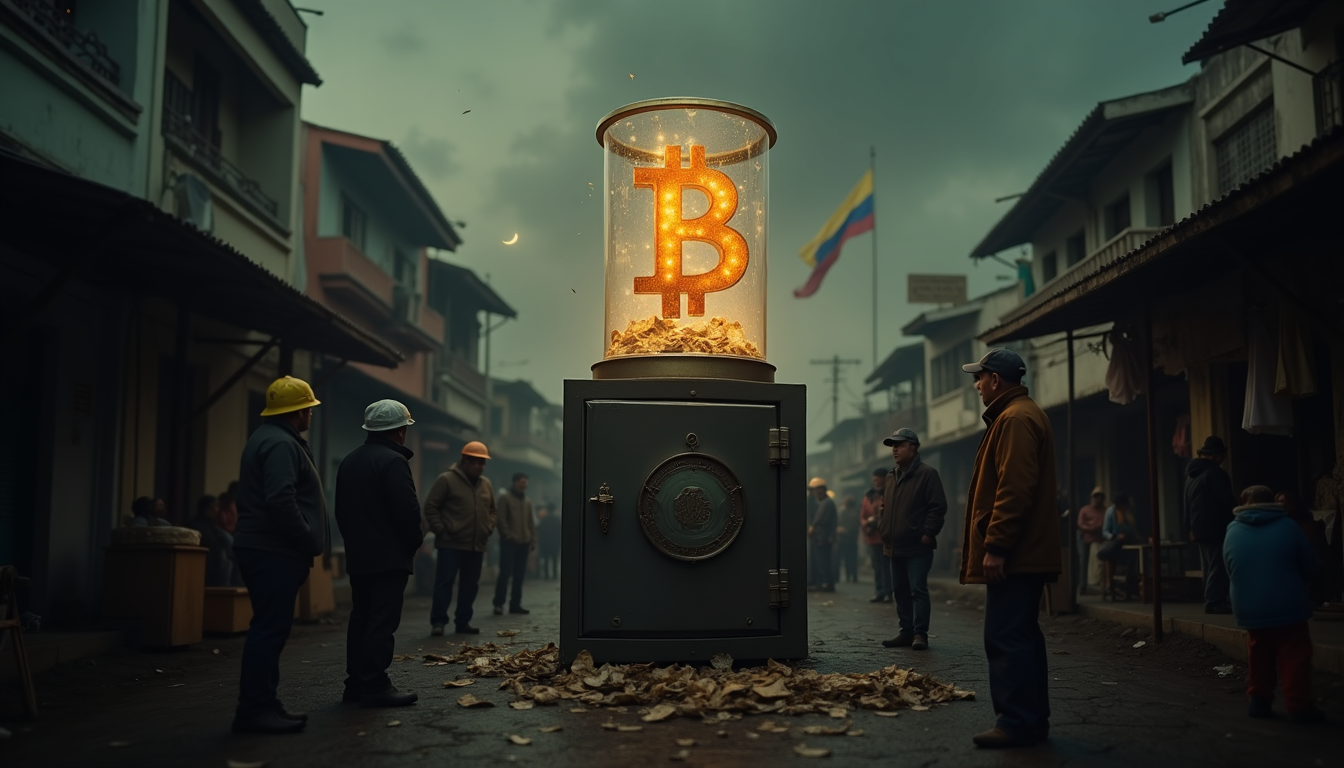- IMF deal compelled El Salvador to stop buying new Bitcoins, and the legal tender status ceased
- Most of the citizens are doomed because of a lack of digital education and infrastructure
- NGO cautions that Bitcoin favors the government more than the people, posing new issues on equity
The Bitcoin reserve of El Salvador, which has made international headlines, has not brought joy to the common people as the economy suffers. The crypto plan of the country, promoted as a major component of the economic agenda, has been dealt another blow following a compromise agreement of the International Monetary Fund (IMF) on the role of the state in the use of Bitcoin, with opponents citing increasing levels of inequality, lack of education, and unfulfilled promises.
Government Strategy Sparks Global Attention, Local Discontent
El Salvador’s president, Nayib B., and his administration have drawn international attention with their decision to recognize Bitcoin as legal tender. They argue that the 760 million reserve in the country will be used in social development projects on health, education, and infrastructure. Marketers propagated that through purchasing Bitcoin, individuals would cause the economy to be immune to inflation shocks and have a financial backstop.
But one of the top managers of a non-governmental organization (NGO) has spoken up against this disparity between these aspirations and real outcomes. Amid the allegations of a digital revolution, the increased cost of living, poor internet coverage, and stagnant salary incomes have made the average citizen oblivious to the cryptocurrency bet.
Source – X
“Bitcoin is no longer a legal tender since the government signed this contract with the IMF, and we have not witnessed any other initiative to train citizens. Quentin Ehrenmann told Reuters that the government, seemingly, keeps on piling up Bitcoin, which is good on the part of the government- it is not good on the part of the people as such.”
IMF Deal Sets New Limits, BTC Vision Falters
Following a lengthy discussion with the IMF, the legislature of El Salvador reversed some of the important aspects of its initial Bitcoin proposal. The legal tender status of Bitcoin was abolished, the involvement of the public sector was drastically reduced, and now Bitcoin is accepted by private businesses on a voluntary basis. The agreement was confirmed by the IMF, which has stopped any further governmental purchases of Bitcoin, which was in opposition to the constant governmental statements about the daily gathering of Bitcoin.
In January, massive reforms were made to make the country comply with IMF loan conditions and regulate state participation in Bitcoin to the market, and privatize Bitcoin-related services like the Chivo wallet. The policy shift has sharpened criticism. According to Ehrenmann, to Reuters X, the official adoption initiatives and education programs disappeared with the IMF requirements, and Bitcoin became useful to only a small and technologically advanced minority, and the rest lost out.
Education Gaps and Unequal Access Plague National Rollout
Cointelegraph’s reports of the visit it had to El Salvador described the extent to which the gap still exists. Small businesses occasionally use Bitcoin through providers such as IBEX Pay, and with the Lightning Network, the process can be fast and cheap. However, even normal payments were not possible without the assistance of foreigners, which indicates a high level of confusion and illiteracy in the sphere of digital technologies.
The rural Salvadorans are challenged to access digital tools, and thus, it is almost impossible to participate in the crypto economy of the country. Critics say that the government’s interest in Bitcoin as a sign of financial sovereignty does not take into account the reality of the ground, where macro-economic benefits flow to government coffers, but ground-level benefits are limited.
